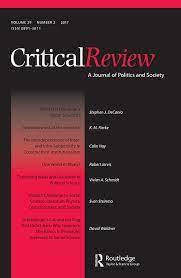Volume 5: A Cultural History of the Sea in the Age of Empire (1800-1920) | Edited by Margaret Cohen

Throughout history, how has the sea served as a site for cross-cultural exchange, trade and migration? As historians, how do the fields of naval history, maritime history and oceanic history intersect?
56 experts, 48 chapters and over 1,700 pages explore how representation and understanding of the sea has developed over 2,500 years of cultural and natural history.
Individual volume editors ensure the cohesion of the whole, and to make it as easy as possible to use, chapter titles are identical across each of the volumes. This gives the choice of reading about a specific period in one of the volumes, or following a theme across history by reading the relevant chapter in each of the six.
The six volumes cover: 1. - Antiquity (500 BCE - 800 CE); 2. - Medieval Age (1800 - 1450); 3. - Renaissance (1450 - 1650); 4. - Age of Enlightenment (1650 - 1800); 5. - Age of Empire (1800 - 1920); 6 - Modern Age (1920 - 2000+).
Each volumes adopts the same thematic structure, covering: Knowledges, Practices, Networks, Islands and Shores, Travelers, Representation, Imaginary Worlds, and Conflicts, enabling readers to trace one theme throughout history, as well as gaining a thorough overview of each individual period.
Volume 5: A Cultural History of the Sea in the Age of Empire (1800-1920)
Edited by Margaret Cohen (Stanford University, USA)


 Diamonds have long been bloody. A new history shows how Germany’s ruthless African empire brought diamond rings to retail display cases in America—at the cost of African lives.
Diamonds have long been bloody. A new history shows how Germany’s ruthless African empire brought diamond rings to retail display cases in America—at the cost of African lives.





